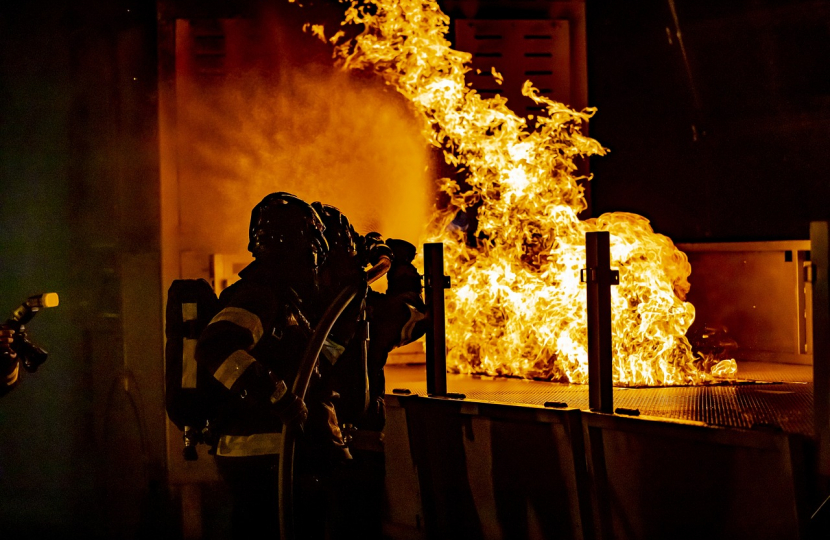
Vale of Clwyd MP Dr James Davies supports the desire of North Wales Fire Authority to ensure that cover across the region is more equitable, but has outlined his concerns over proposed changes which would impact services delivered from Rhyl Fire Station.
Since July, North Wales Fire and Rescue Authority has been encouraging people to get involved in a public consultation to gather feedback from those who live, work and travel in the region about the provision of future emergency cover services in North Wales.
Responding to the consultation, James highlighted the concerns of firefighters, who he has been in discussion with over the proposals, and stressed that the Rhyl station “currently covers an area where the population continues to increase”.
His response states:
“I support the desire to ensure that cover is more equitable and reflects the diverse needs of the region and therefore, see the value of Option 1 and 2 from the perspective of introducing greater cover in South Denbighshire. Nevertheless, I am naturally disappointed that all three options put forward within the consultation document result in impaired provision via the Rhyl station.
“While the achievement of 20 minute response times may remain unchanged within the Rhyl catchment area, that almost certainly obscures a deterioration in the 10 minute response time.
“The Rhyl station currently covers an area where the population continues to increase, along with many busy roads. It also deals with an increasing number of flooding incidents.”
He added:
“The changes proposed in the review would result in a significant impact on some existing staff. Those crew members who do not live within five minutes of Rhyl station (whether travelling at 20mph or otherwise) would be required to find alternative accommodation for the nights that they are on duty. As I understand it, this would usually be in excess of 90 nights a year. Whilst I appreciate that there is an option to relocate staff who may live closer to Rhyl station but currently work out of area, no preferencing exercise has been undertaken as yet and therefore there are unknown impacts.
“I believe that staff would be eligible for a payment which is intended to cover the cost of finding nearby accommodation for on-call duty. However, I am told this is not always adequate to meet hotel costs and many might need to sleep in a van on site. This would clearly have an impact on their quality of life and could result in fire fighters leaving the service.
“It is clear that funding is a key driver for the options being discussed in the review and this is inevitable. Council tax increases present a difficulty for householders, especially during the current economic climate. Nevertheless, I understand that for NWFRS, inflationary pressures combined with a desire to improve cover pose great challenges. Delivering a sustainable service is imperative and NWFRS will appreciate that, if my local taxpayer is being asked for increased contributions, this will be difficult to justify if the service being offered in the immediate area is to be inferior.”
James also expressed concern at the Authority’s statement that “in the future, the Welsh Government’s aspiration is that we explore being able to assist our ambulance colleagues further by responding to cardiac arrests. To do all this we would need to be in the right place”.
He said:
“It is not the Fire Service’s responsibility to compensate for the Welsh Government’s mismanagement of the Ambulance Service and NHS provision. It would be wrong for this consideration to influence decisions arising from the Emergency Cover Review.
He also raised the concerns of FBU members that a greater reliance on retained staff may be unwise, stating; “They are troubled by a general decline in on-call firefighter availability due to societal changes. The potential impact of this must be considered in any plans brought forward. Additionally, as these staff have primary jobs, their availability is often reliant on their employer’s flexibility and goodwill. Over-reliance on such arrangements could diminish the support of employers.”
He concluded his response by urging the Authority to “carefully consider the FBU’s counter proposals.”
